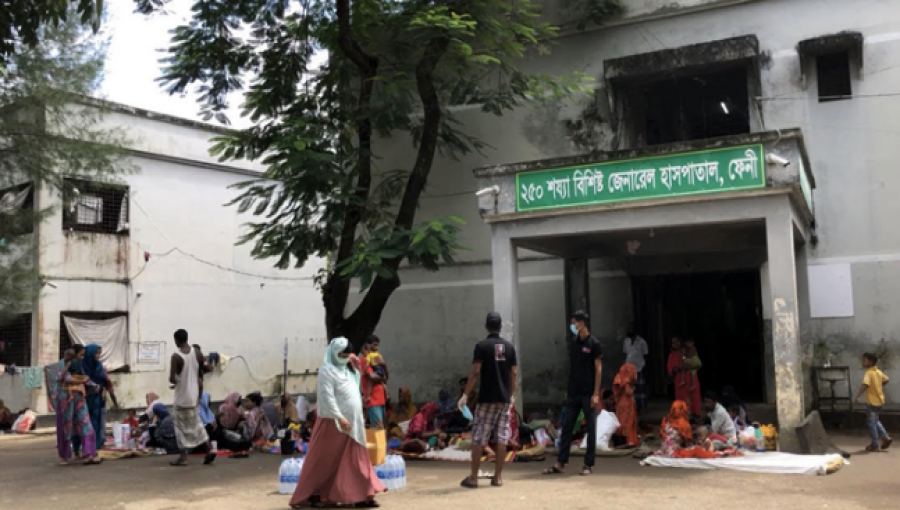
Photo: Voice7 News
and their families crowd the Feni General Hospital, where the 18-bed diarrhea ward is inundated with 176 patients amid a surge of flood-related illnesses. Many are being treated on the floor or outside due to severe overcrowding.
Feni, Sep 06 (V7N) – Following recent flooding, Feni General Hospital, which has a capacity of 250 beds, is facing a severe overcrowding crisis. The hospital's 18-bed diarrhea ward is currently treating 176 patients, including both newborns and adults up to 30 years old, far exceeding its intended capacity.
With the retreat of floodwaters, Feni is experiencing a surge in waterborne diseases. The diarrhea ward alone is accommodating over nine times the number of patients it was designed for, resulting in individuals being treated on the floors, in the hallways, and outside in the sun or rain while awaiting medical care.
Patients have reported receiving insufficient medical attention, with some only seeing a doctor once a day and not being provided with necessary medications. The medical staff, already stretched thin, are struggling to manage the overwhelming number of patients.
Amena Begum, who brought her one-year-old daughter from the flood-affected area of Fulgazi, mentioned that they had to consume floodwater, which led to various health problems. Her child, suffering from diarrhea for several days, required treatment at the hospital, but upon arrival, they found no available space and had to seek treatment outdoors.
The hospital is also unable to provide essential services such as dialysis and ultrasound due to damage from the floods. Despite assurances, technicians from Dhaka have not yet arrived. Moreover, the hospital has been lacking specialists in medicine, dermatology, surgery, orthopedics, and radiology for an extended period, further straining their limited resources.
Dr. Nazmul Hasan Shammi, a medical officer at the hospital, stated, “We are doing our best with the available staff and are committed to providing care to our patients.”
Senior staff nurse Sultana Rani Basak noted, “We are handling several times more patients than the ward’s capacity, making it extremely challenging to provide adequate care with our limited personnel.”
The hospital is seeing an increase in cases of fever, colds, coughs, diarrhea, vomiting, dysentery, typhoid, and snake bites. Authorities report that there are currently 600 patients in the 250-bed facility, with an additional 1,000 patients in the emergency department. Of the admitted patients, 350 are suffering from diarrhea, with a significant number being children and elderly individuals.
END/MKB/SMA/
Comment: